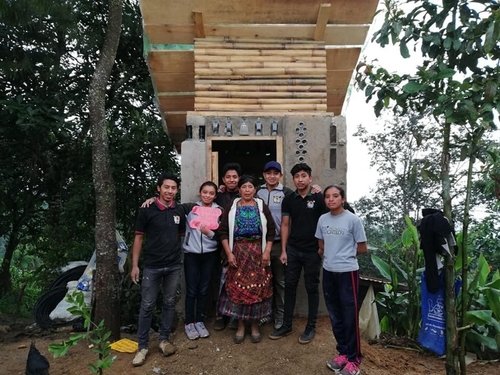Transforming Sanitation in Comalapa: Hero School’s 9th Grade Dry Composting Latrine Project
The Sanitation Crisis in Comalapa: A Public Health Emergency
In Comalapa, Guatemala, access to basic sanitation is far from guaranteed. Many families lack proper toilets, relying instead on pit latrines or open defecation, which contaminates soil and water sources, spreading disease and increasing health risks. The situation is even worse during the rainy season, as waste can seep into drinking water supplies, causing severe gastrointestinal illnesses.
With over 70% of families living in poverty, conventional sewage systems are not an option. The lack of sanitation not only impacts health but also dignity and safety, particularly for women and young girls.
A Student-Led Solution: Dry Composting Latrines
From May 19-23, 2025, Hero School’s 9th-grade students will address this crisis by building dry composting latrines for families in need. These eco-friendly latrines require no water, making them ideal for areas with limited resources while also providing an innovative solution for sustainable sanitation.
How Dry Composting Latrines Work
✅ Built with eco-bricks (plastic bottles compacted with non-biodegradable waste) to create sturdy walls
✅ Separate solid and liquid waste, allowing solids to break down into compost safely
✅ Requires little to no water, making them sustainable in water-scarce regions
✅ Transforms human waste into nutrient-rich compost for agricultural use
An Incredible Learning Experience for Students
Building dry composting latrines is one of the most comprehensive construction projects students take on at Hero School. This project provides an opportunity to learn and apply real-world skills in:
🏗 Structural Engineering & Design: Students construct an entire building from the foundation to the roof, learning the basics of architecture and weight distribution.
📏 Mathematics & Measurement: Precision is key in cutting and assembling materials, ensuring proper alignment, ventilation, and waste separation.
🚰 Plumbing & Sanitation Systems: Students install basic plumbing to properly direct waste and manage decomposition efficiently.
🛠 Sustainable Construction Techniques: Using eco-bricks, repurposed materials, and low-water designs, students learn how to build with minimal environmental impact.
Why Dry Composting Latrines?
Traditional sanitation methods are unsustainable in rural Guatemala, where water is scarce, and pit latrines contaminate groundwater. Dry composting latrines provide a safe, eco-friendly, and long-term sanitation solution:
🚽 Improves Public Health: Reduces water contamination and prevents the spread of disease
🌱 Eco-Friendly: Turns waste into natural fertilizer instead of pollution
💧 Water Conservation: Requires no flushing, making it perfect for drought-prone areas
🏡 Low-Cost & Sustainable: Uses repurposed materials, lowering construction costs
The Environmental and Social Impact
Dry composting latrines solve multiple issues at once, improving health, sanitation, and sustainability:
💧 Protects Clean Water Sources: Prevents contamination of rivers and wells
🔄 Waste Becomes a Resource: Produces compost for local agriculture
🌍 Reduces Plastic Waste: Incorporates eco-bricks into construction
❤️ Enhances Safety & Dignity: Provides a private, safe, and sanitary space for families
How You Can Help
These student-led projects need your support to create lasting change! Here’s how you can contribute:
💰 Donate: Help us buy essential materials like cement, pipes, and wood
🤝 Volunteer: Join us on-site to assist students in constructing latrines
📢 Spread Awareness: Share this initiative with service groups and donors
With your support, we can empower students to create lasting sanitation solutions for families in need.
📅 Project Dates: May 19-23, 2025
🌍 Be part of the solution—Donate or Volunteer!


